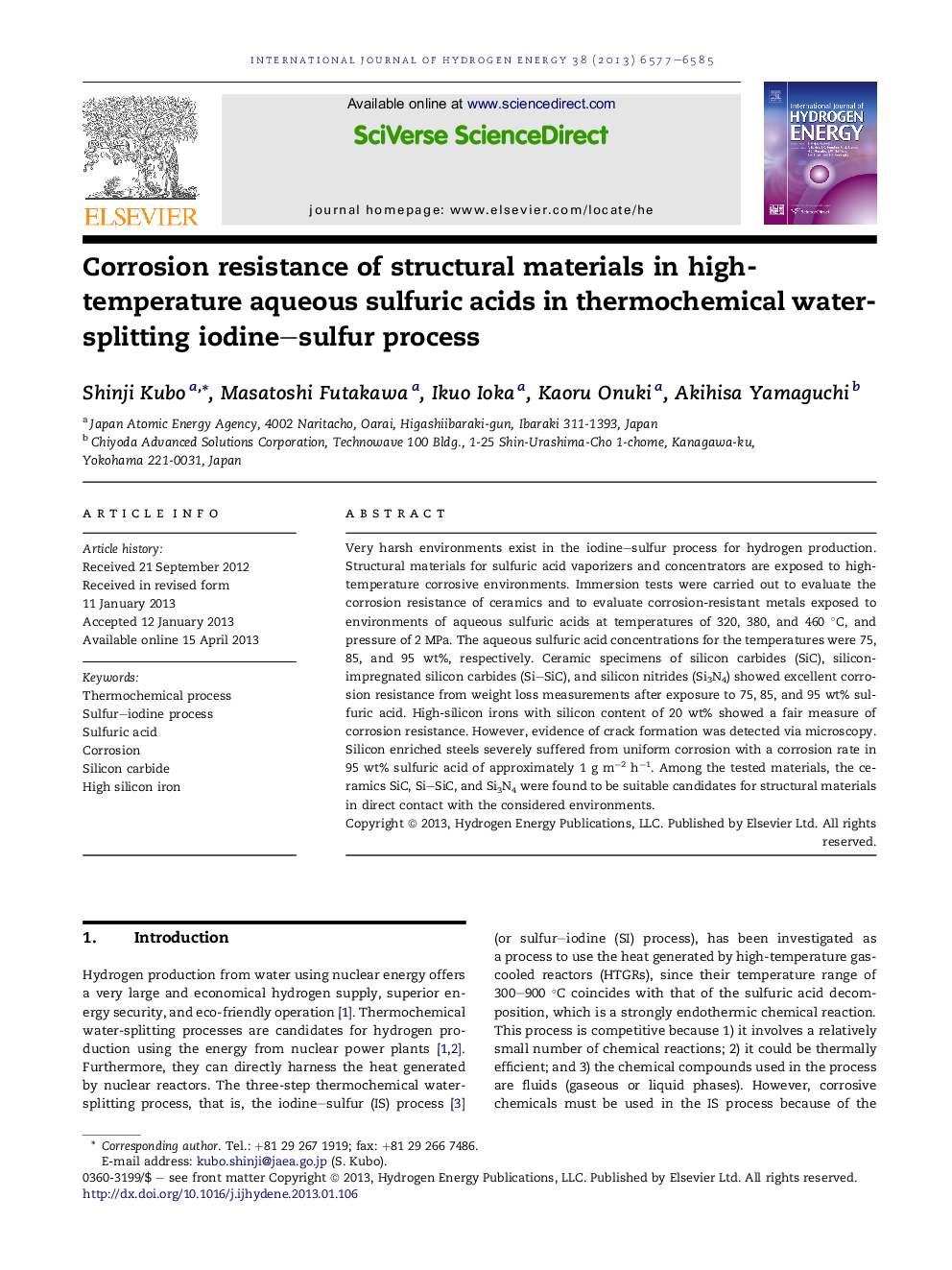| کد مقاله | کد نشریه | سال انتشار | مقاله انگلیسی | نسخه تمام متن |
|---|---|---|---|---|
| 1281577 | 1497529 | 2013 | 9 صفحه PDF | دانلود رایگان |

Very harsh environments exist in the iodine–sulfur process for hydrogen production. Structural materials for sulfuric acid vaporizers and concentrators are exposed to high-temperature corrosive environments. Immersion tests were carried out to evaluate the corrosion resistance of ceramics and to evaluate corrosion-resistant metals exposed to environments of aqueous sulfuric acids at temperatures of 320, 380, and 460 °C, and pressure of 2 MPa. The aqueous sulfuric acid concentrations for the temperatures were 75, 85, and 95 wt%, respectively. Ceramic specimens of silicon carbides (SiC), silicon-impregnated silicon carbides (Si–SiC), and silicon nitrides (Si3N4) showed excellent corrosion resistance from weight loss measurements after exposure to 75, 85, and 95 wt% sulfuric acid. High-silicon irons with silicon content of 20 wt% showed a fair measure of corrosion resistance. However, evidence of crack formation was detected via microscopy. Silicon enriched steels severely suffered from uniform corrosion with a corrosion rate in 95 wt% sulfuric acid of approximately 1 g m−2 h−1. Among the tested materials, the ceramics SiC, Si–SiC, and Si3N4 were found to be suitable candidates for structural materials in direct contact with the considered environments.
► We carried out immersion tests to evaluate the corrosion resistance of materials.
► SiC, Si–SiC, Si3N4, high-silicon irons, and silicon enriched steels were examined.
► Test samples were exposed to aqueous H2SO4 at 2 MPa and near bubbling points.
► A broad range of concentrations, 75 wt%, 85 wt% and 95 wt%, of H2SO4 were used.
► Silicon containing ceramics showed excellent corrosion resistance.
Journal: International Journal of Hydrogen Energy - Volume 38, Issue 16, 30 May 2013, Pages 6577–6585